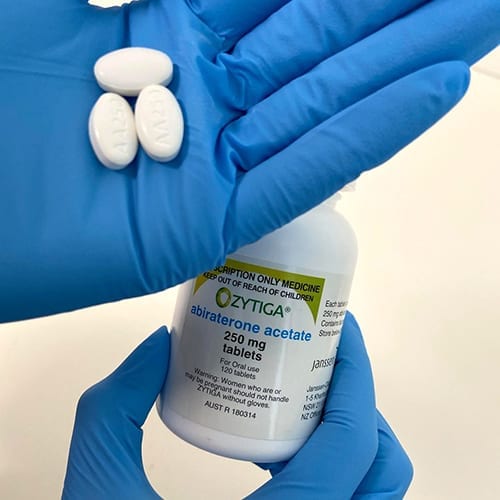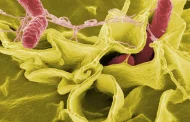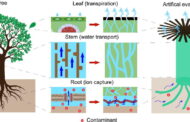
via University of South Australia
A novel formulation of the prostate cancer drug abiraterone acetate – currently marketed as Zytiga – will dramatically improve the quality of life for people suffering from prostate cancer, as pre-clinical trials by the University of South Australia show the new formulation improves the drug’s effectiveness by 40 per cent.
Developed by Professor Clive Prestidge’s Nanostructure and Drug Delivery research group at UniSA’s Cancer Research Institute, the breakthrough discovery uses an oil-based oral formulation that not only enables a smaller dose of the drug to be effective, but also has the potential to dramatically reduce possible side effects, such as joint swelling and diarrhoea.
Despite Zytiga being the leading formulation to treat prostate cancer, lead researcher, Dr Hayley Schultz says the new formulation will ultimately provide a better treatment for patients with prostate cancer.
Prostate cancer is the most commonly diagnosed cancer in men, with one in six at risk of diagnosis before the age of 85.
In 2019, more than 19,500 cases of prostate cancer were diagnosed in Australia. Globally, prostate cancer cases reached 1.28 million in 2018.
“Many drugs are poorly water soluble, so when they’re ingested, they enter the gut but don’t dissolve, which means that their therapeutic effect is limited,” Dr Schultz says.
“This is the case for Zytiga. Here, only 10 per cent of the dose is absorbed, leaving the other 90 per cent undissolved, where it simply passes through the body as waste.
“On top of this, patients taking Zytiga must fast for two hours prior to taking the drug, and another hour after taking the drug to achieve predictable absorption. And as you can imagine, this can be painstakingly inconvenient.
“Our new formulation changes this. By using oils to mimic pharmaceutical food effects, we’re able to significantly increase the drug’s solubilisation and absorption, making it more effective and a far less invasive treatment for patients.”
The new formulation uses very high levels of abiraterone acetate dissolved within a specific oil and encapsulated within porous silica microparticles to form a powder that can be made into tablets or filled into capsules. Applied to human treatment, it could reduce the dose from 1000mg to 700mg per day, without the need for fasting.
Prof Prestidge says if the team can secure funding, clinical trials in humans could be just two years away.
“Based on our knowledge of this drug’s pharmaceutical food effect, we hypothesise its absorption in humans will be extensively improved using this technology”, Prof Prestidge says.
“Anything we can do to contribute to the development of a commercialised product to improve the lives of patients, is invaluable.
“This novel formulation is flexible enough to be adopted by thousands of different medicines; its potential to help patients of all kinds is exponential.”
The Latest Updates from Bing News & Google News
Go deeper with Bing News on:
Prostate cancer treatment
- AUA 2024: Awaiting New Data in the Treatment of Metastatic Prostate Cancer
Cite this: AUA 2024: Awaiting New Data in the Treatment of Metastatic Prostate Cancer - Medscape - Apr 26, 2024.
- King Charles shares ‘positive’ cancer news as Palace releases heartwarming photo with Camilla
King Charles shares ‘positive’ cancer news as Palace releases heartwarming photo with Camilla - Doctors ‘remain positive about the king’s continued recovery’
Go deeper with Google Headlines on:
Prostate cancer treatment
[google_news title=”” keyword=”prostate cancer treatment” num_posts=”5″ blurb_length=”0″ show_thumb=”left”]
Go deeper with Bing News on:
Prostate cancer
- This is how we do it: ‘Since having prostate cancer I can’t get an erection, but I still get just as much pleasure’
With penetrative sex no longer an option, Sebastian and Teresa have found different ways to satisfy one other ...
- WATCH: OJ Simpson died from metastatic prostate cancer
In May 2023, Simpson announced that he'd been diagnosed with cancer, and LaVergne admits that he thought that the controversial star had beaten the disease at one point in time. He said: "I was pretty ...
- APCCC 2024: When to Do Tumor Genomic Profiling in Advanced Prostate Cancer and What?
Advanced Prostate Cancer Consensus Conference (APCCC) meeting featured a session on the management of metastatic CRPC (mCRPC), and a presentation by Dr. Niven Mehra discussing when we should do tumor ...
- OJ Simpson’s Cause of Death Revealed as Prostate Cancer
The official cause of death of former football star and actor O.J. Simpson was announced Friday by his attorney and the executor of his estate. Malcolm Lavergne, who had been Simpson’s legal ...
- Prostate Cancer Summit: Unveiling the Latest Strategies to Beat Prostate Cancer
When it comes to prostate cancer, sign up for free at the Prostate Cancer Sumit and gain clarity and confidence in your decision-making. It will be hosted by one of the leading authorities in men's ...
Go deeper with Google Headlines on:
Prostate cancer
[google_news title=”” keyword=”prostate cancer” num_posts=”5″ blurb_length=”0″ show_thumb=”left”]







